If you found your way here to this page, odds are pretty high that you, well, love dogs. You even love them when they fight you [literally] tooth and nail to avoid having their teeth brushed. No one likes forcing a toothbrush across an unwilling dog’s teeth every day. Hey, even little humans take a few years to adjust to that idea.
Still, dental hygiene is extremely important to your dog’s overall well-being – not just the way their breath smells. Plaque can really start to build up on a dog’s teeth in just 24 hours. As innocent as that sounds, it’s much more dangerous for dogs than it is for people. That’s why daily maintenance is so necessary.
So, how do we take better care of our dog’s teeth without wearing ourselves out fighting them to do it? Why, we give them something to snack on! Well, not just anything. Giving your dog a WHIMZEES® dental chew once a day is the most convenient, effective and FUN way to help reduce plaque and tartar build-up.
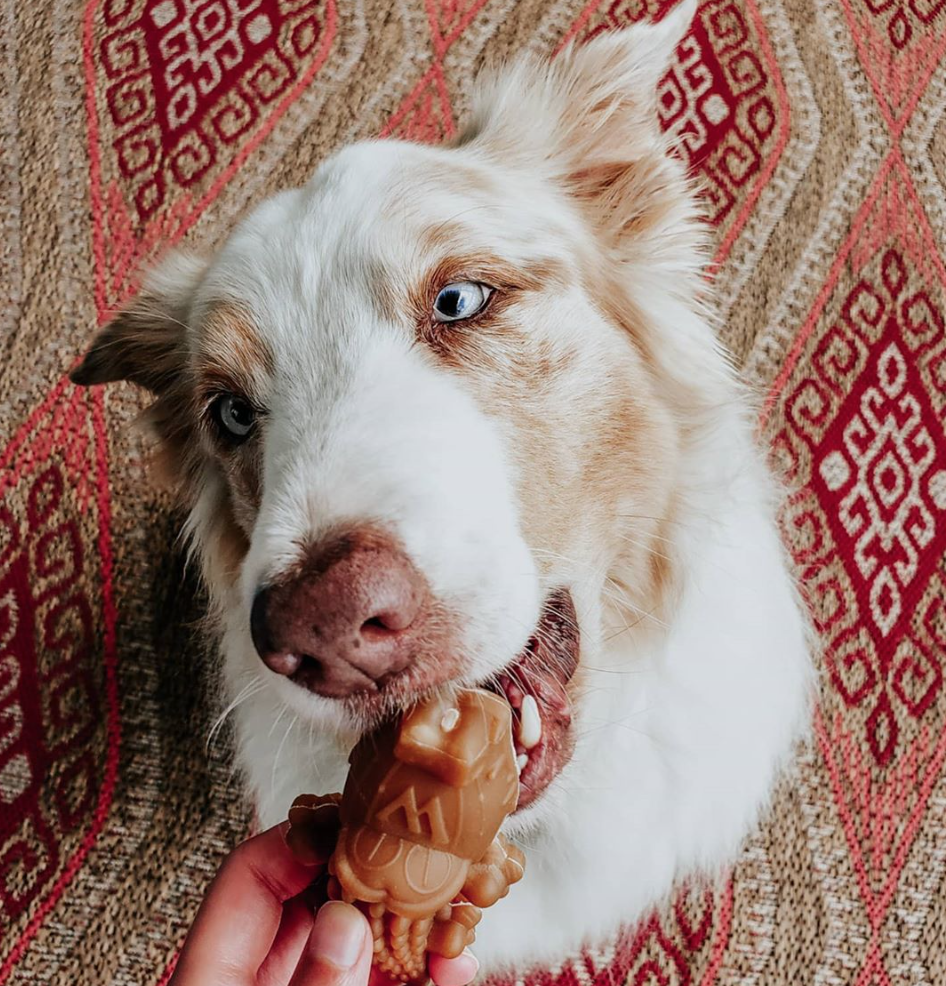
Treats may seem like a questionable way to maintain your dog’s teeth and health, but according to Web MD Pets, regularly chewing on dental treats can reduce plaque by 70%. Not all dental products work the same way, but WHIMZEES® really help improve your pup’s health!
Let’s get into a bit about doggie dental hygiene, health, and why WHIMZEES® can help save your pup’s teeth and improve their overall health.
Dog Dental Disease In Digits
While we’d all like to think it couldn’t happen to our doggie, the truth is serious dental disease is fairly widespread in dogs. Much of that has to do with genetics, but a lot has to do with improper care and attention.
The facts are:
- Dental disease affects 80% of adult dogs, and up to 96% of Senior dogs over 12 years of age.
- Only 14% of pets receive dental care by a vet.
- Only 2% of pet parents brush their dog’s teeth.
- And dogs are 5x more likely than humans to develop gum disease!
-
-
Daily WHIMZEES® chews assist in reducing the excessive plaque and tartar that can make your dog ill.
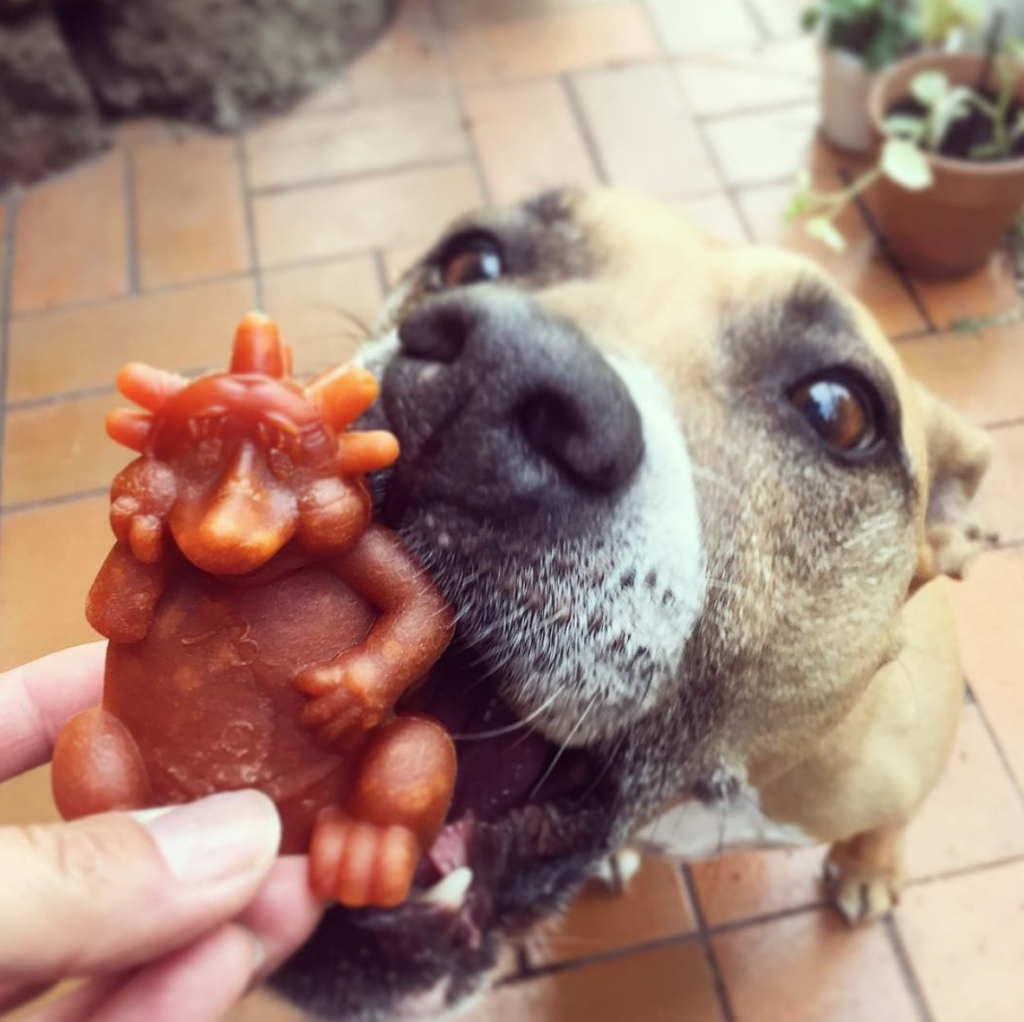
Consequences Of Your Dog’s Poor Dental Health
No, it’s not just kind of icky to skip doggie dental hygiene. Improper care of a dog’s teeth can affect much more than just their mouths. Dr. Danielle Bernal (B.VSC, MRCVS) Global Vet Nutrition Director explains:
“The importance of looking after your dog’s teeth is critical not just to their oral health but to their total wellbeing. Left untreated, dental disease can cause not just tooth loss and severe pain but also systemic health issues such as heart, kidney and liver disease.”
These health complications vary but include:
Heart Valve Infections
Yes- poor dental health can become that severe. When bacteria from the mouth travels and settles on the heart valves, it may cause infection. Bacterial endocarditis (infection of the interior of the heart) could permanently damage your dog’s cardiac tissue and lead to heart disease or potentially heart failure.
Liver Abscesses
Swallowed bacteria can easily make its way to the liver too. Liver infections are extremely costly to fix and potentially life-threatening.
Sepsis (a.k.a. Blood Infection)
Bacteria from the mouth can also enter your dog’s bloodstream and cause infection. Sepsis is treatable, but it’s still a huge health risk.
Poor Appetite
When your teeth hurt with every bite, eating becomes way less enjoyable. Your dog’s painful infections or swelling may impact their ability to enjoy meals.
Osteomyelitis (a.k.a. Bone Infection)
Severe canine dental disease can lead to bone infections or broken jaws. According to Dr. Denise Petryk, Director of Veterinary Services at Trupanion, this is especially true in smaller dogs most prone to dental disease. It can have painful and potentially unfixable complications.
“The bone under the teeth is susceptible to infection and becoming brittle. When this bone breaks, it is very hard for it to heal AND it is very difficult for veterinarians to fix some of these fractures.”
Breeds Most Vulnerable To Dental Disease
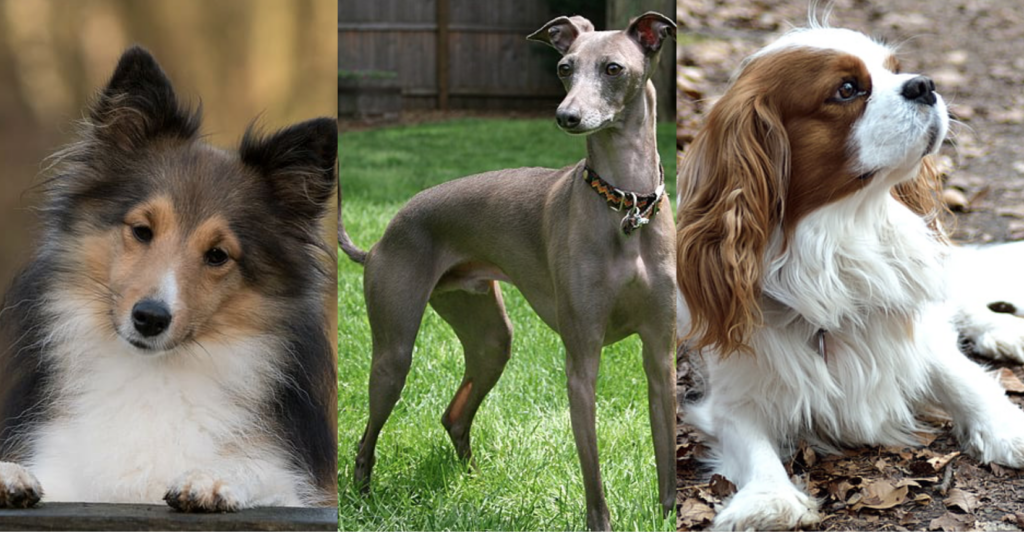
Dental disease and complications can happen to any pup without proper care and hygiene, but some breeds are more likely to suffer from it.
The dogs most likely to develop dental disease tend to be genetically predisposed to it. Smaller dogs, for example, are especially likely to have dental issues. Smaller jaws can lead to teeth crowding which causes gingivitis, periodontal disease, and eventually painful tooth loss. Dogs with longer snouts may have tooth and gum-related issues as well.
Most common breeds with dental issues include:
- Pug
- Yorkshire Terrier
- Sheltie
- Chihuahua
- Cavalier King Charles Spaniel
- Greyhound
- Dachshund
- Maltese
How Can I Tell If My Dog Has Dental Disease?
Your veterinarian is really the expert, and regular check-ups are essential! Make sure to keep up on your pup’s annual visits. Veterinarians can perform dental operations, though putting a pup under anesthesia is always a risk. Monitoring your dog’s dental health makes a huge difference.

Symptoms of dental disease include:
- Terrible breath
- Visible deposits on your dog’s teeth or discoloration on their gums
- Any bleeding around teeth or gums
- Poor appetite (your dog might just be in too much pain to eat!)
- Excessive drooling
If you witness these symptoms, consult a veterinarian right away.
Beginning a healthy tooth regimen with your pup now is the best way to help prevent disease. Remember: all it takes is a chew a day. Click here to save $3 on WHIMZEES® bags!
Why WHIMZEES® Are Your Dog’s Dental Health Solution
Proven Effectiveness
Independent kennel studies found WHIMZEES® Brushzees® significantly slow the formation of tartar and plaque. These chews also received the Veterinary Oral Health Council (VOHC®) seal of acceptance, which they don’t give out to just anyone.
Because WHIMZEES® encourage your pup to chew for a while, they clean for longer than [you with] a toothbrush would. The chews also have nubs and ridges that serve as “bristles” and help clean hard to reach places in a dog’s mouth. In studies of comparable products conducted by an independent kennel between 2017 and 2019, WHIMZEES® cleaned 2x better than the average dental chew and lasted 3x as long.
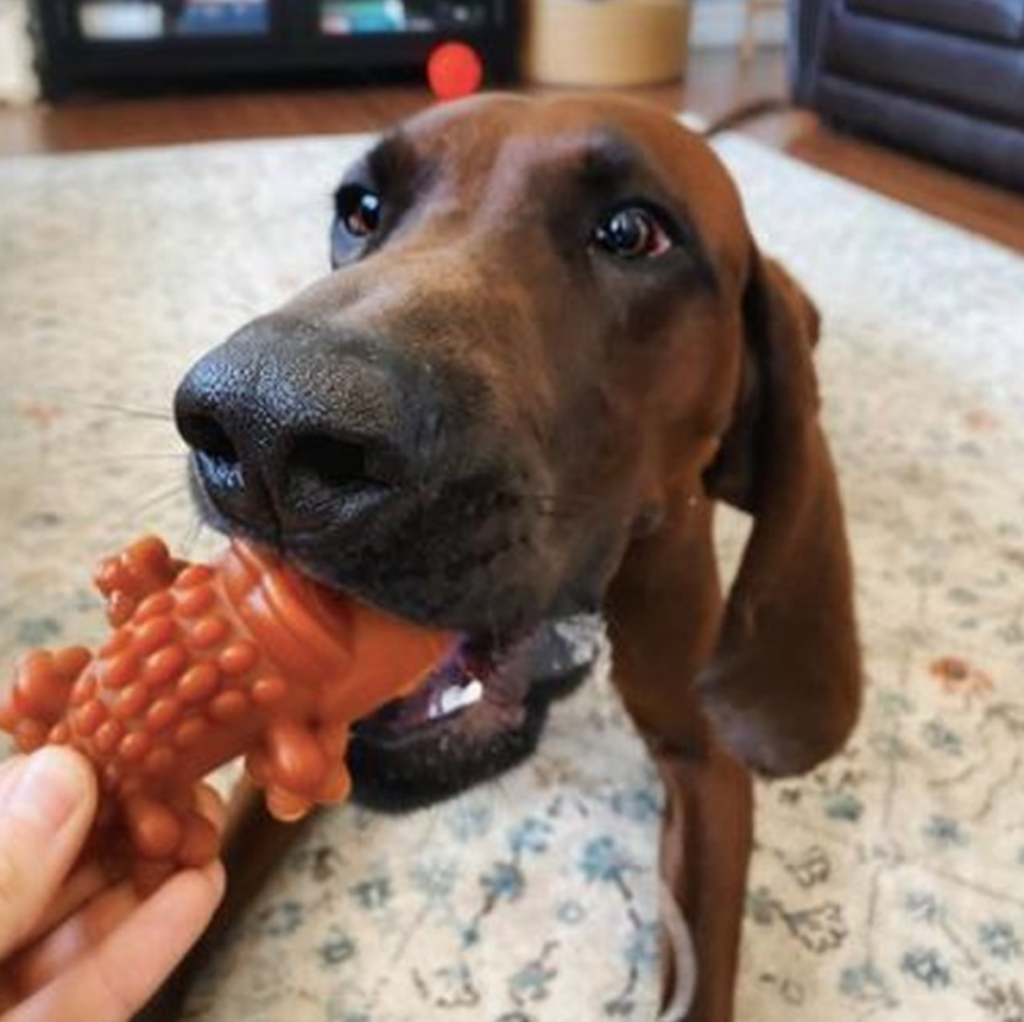
Convenience
The only effort involved in giving your dog a treat is restraining yourself from giving them more. I mean, that and opening the bag. Since WHIMZEES® assist in plaque and tartar reduction, you’ll save a lot of grief trying to hold your dog’s jaws apart for a brushing. All you gotta do is hand one over to the eager pup!
Um… Dogs Love Them!
WHIMZEES® may help do the chore, but that’s not how your dog will see it. They taste good and they’re fun to nibble on! WHIMZEES® time is treat time.
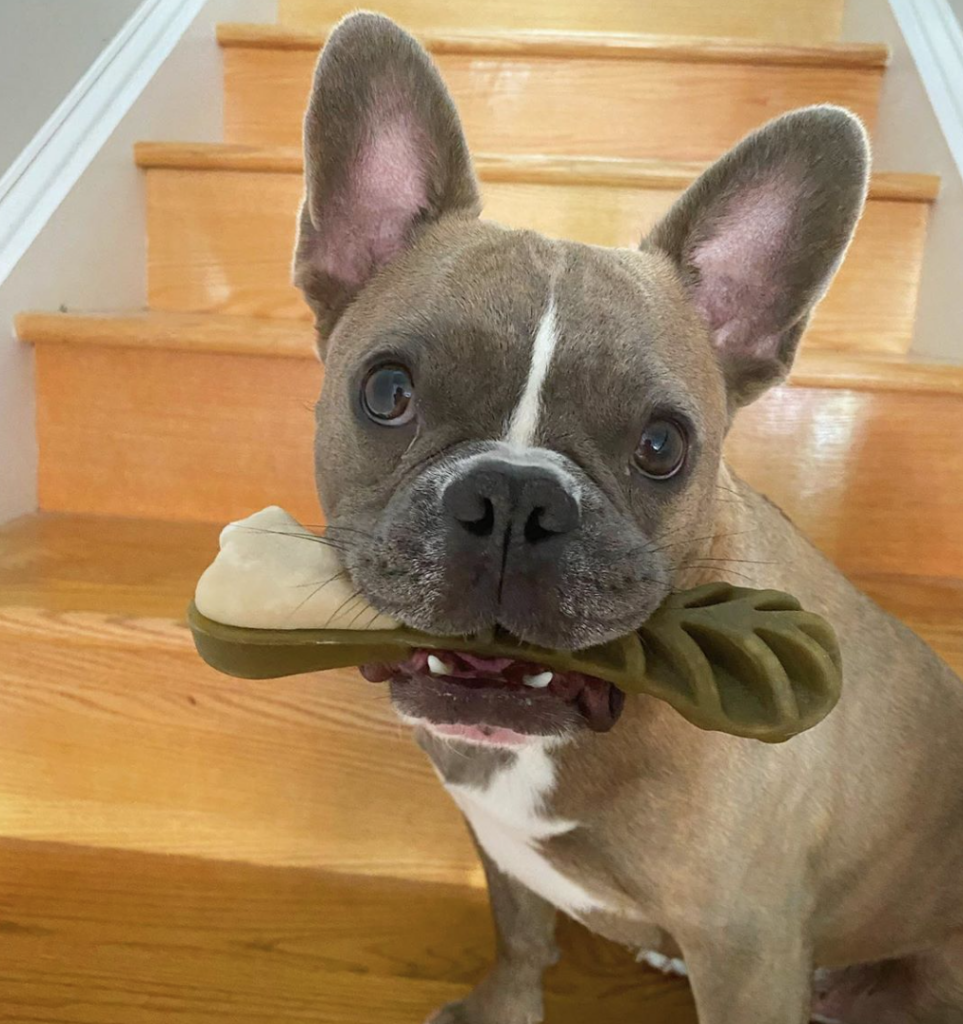
WHIMZEES® contains no artificial additives or flavors and are made with just 6 primary ingredients. They’re totally grain and gluten-free too. Simply put: they’re all-natural dental treats for your dog!
Parents Love Them Too!
If you’re like me and enjoy buying things that your dog likes but that also looks cute as heck, you’ll love the alligator and hedgehog chews. But if you see hygiene as hygiene, you might like the toothbrush chews. Your dog will love them either way, trust me.
https://www.instagram.com/p/CAsr_0pp6AM/
A Brand That Cares About Earth
When you buy a WHIMZEES® treat, you’re also supporting a company that supports the planet. Based in Massachusetts with manufacturing The Netherlands, WHIMZEES® works hard to reduce their energy output and waste. They source their materials locally and dutifully recycle!
You can save $3 on WHIMZEES® bags and start taking your pup’s teeth seriously today. And personally, I really think you should.
Notes:
(’17-’19) Based on studies of comparable products conducted by an independent kennel.
Featured Image: @whimzeesus/Instagram, @aussie.amber/Instagram
 Toledo, United States.
Toledo, United States.